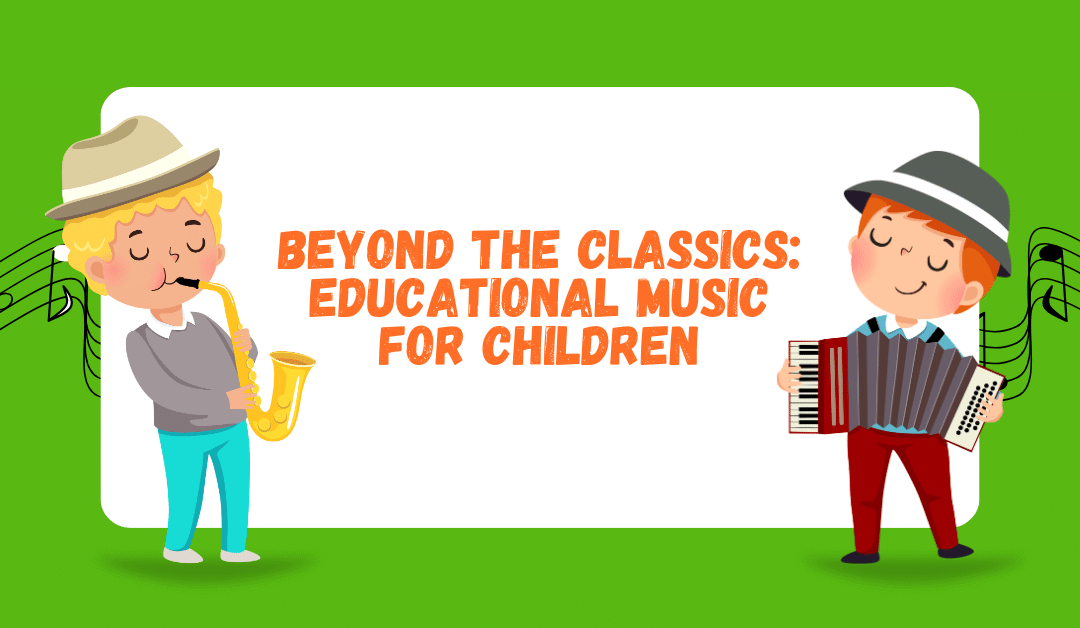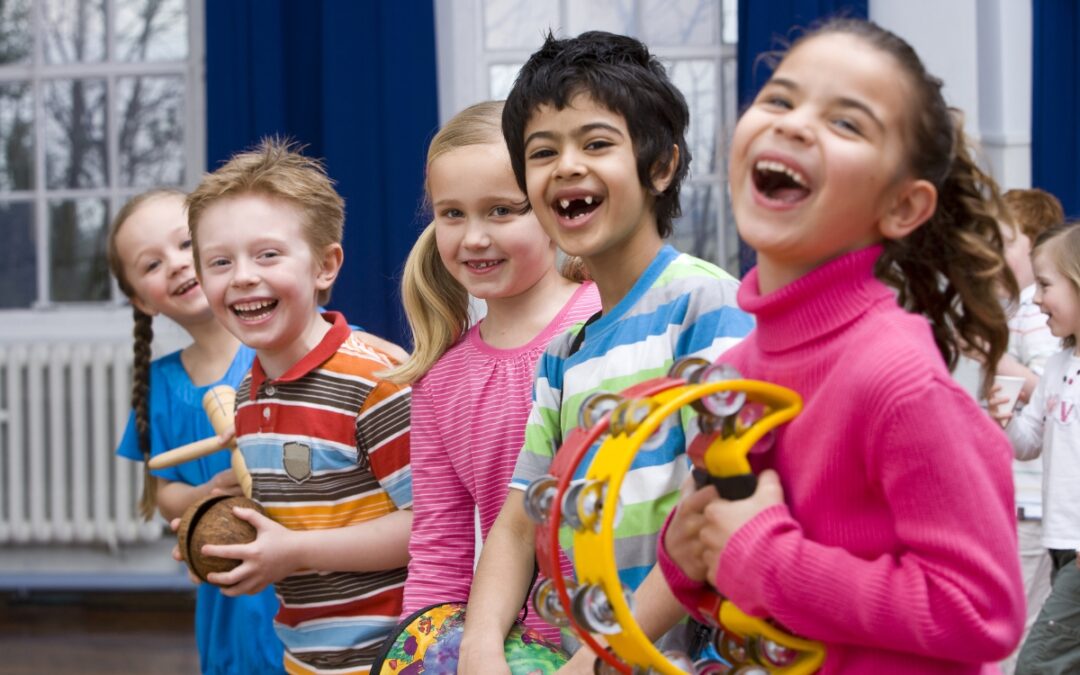
by | Apr 16, 2021 | Music & Entertainment
As a parent, providing your toddler with various experiences that foster their learning and development is vital. It is imperative to invest in your toddler’s learning, as the experience gained during the early years of life has a tremendous impact on future academic success. Research has found that children who participate in appropriate educational activities and receive proper instruction during the toddler years are more likely to perform better in school and even have higher IQs later in life.
Investing in your toddler’s learning can help foster a love of learning from an early age. Providing fun and educational activities will give them the tools to explore their environment, build problem-solving skills, develop language and communication abilities, practice self-regulation and control emotions effectively, and eventually become successful academically and practically.
Here are seven ways you can invest in your toddler’s learning through music:
Introduce educational music for children
Educational music for children is designed to teach your toddler important skills such as counting, the alphabet, and basic concepts such as colors and shapes. Many educational music albums for children can be found online or in music stores, and many are available for streaming services, which allow you to play them on demand.
Make use of nursery rhymes
Nursery rhymes are a classic way to teach toddlers language skills and improve their memory. You can find nursery rhymes on many educational music albums for children or online. You can even make up your rhymes to sing to your toddler, using things you see and do together during the day.
Use jingles and rhymes to make learning fun
Jingles and rhymes can be used to teach your toddler various concepts in a fun and interactive way. For example, you can use jingles and rhymes to teach your toddler the names of different body parts or the names of different animals.
Play for play music
While it is a lot of free music available online, it can be beneficial to invest in paid for unique music for your toddler. These songs are often specifically tailored to the developmental needs of toddlers and can be a great way to introduce them to new concepts and ideas. Choosing pieces with uplifting beats and thought-provoking messages, like Clubbaby’s latest collection of nursery rhymes, can help promote physical, emotional, and cognitive growth in kids.
Incorporate music into daily activities
You can incorporate music into many of your daily activities with your toddler, such as during mealtime, bath time, or playtime. This can make these activities more enjoyable for you and your toddler and be a great way to teach them new concepts.
Make use of technology
There are a variety of apps and websites that offer music designed for toddlers. These apps can help teach your toddler essential skills such as counting and the alphabet and can be accessed from a tablet or phone, making it easy to incorporate music into their daily routine.
Take your toddler to a music class
Many communities offer music classes specifically for toddlers. These classes are led by a teacher and allow your toddler to interact with other children while learning through music. It’s a great way to introduce your toddler to new instruments and music styles and expose them to a musical environment.
In conclusion, incorporating educational music into your toddler’s daily routine is a great way to invest in their learning and development. By introducing educational music for children, making use of nursery rhymes, jingles, and rhymes, investing in paid unique music, incorporating music into daily activities, utilizing technology, and taking your toddler to a music class, you can provide your toddler with a variety of experiences that will foster their learning and development. Music is a powerful tool that can be used to teach your toddler essential skills, improve their memory and concentration, and make learning fun and interactive.

by | Mar 13, 2021 | Music & Entertainment
Music education is an essential part of comprehensive education for children. It helps to develop creativity, stimulates the brain, and exposes students to various musical styles, techniques, and cultures. Music can also be an excellent way to express emotion and connect with others in meaningful ways. However, many parents and educators tend to stick to classical music as a go-to for children’s music education.
This article will discuss ten unique and diverse music styles that can provide educational and developmental benefits for children beyond the classics.
- Folk Music: Folk music is a genre closely tied to a particular region’s culture and traditions. It is often passed down through generations and is a great way to expose children to different cultures and historical perspectives.
- Blues Music: Blues music is an American roots genre that has significantly influenced many other styles of music. It is characterized by its use of the blues scale, repetitive rhythms, and lyrics that often deal with hardship and adversity. This genre can be an excellent tool for helping children understand and process their own emotions.
- World Music: World music encompasses a wide range of styles and cultures and can be a great way to expose children to different sounds and instruments from around the world.
- Jazz Music: Jazz is known for its improvisation, syncopated rhythms, and use of various chord progressions. It can help children to develop their creativity and improvisation skills and build their musical vocabulary.
- Gospel Music: Gospel is a Christian-based music genre characterized by its powerful vocals, call-and-response structure, and emphasis on spiritual themes. It can be an excellent way for children to learn about faith, spirituality, and the power of music to inspire and uplift.
- Hip-Hop Music: Hip-hop is a genre that has grown in popularity in recent years, and it can be a great way to expose children to different styles of music. Hip-hop encourages self-expression, creativity, and originality, which can benefit children’s development.
- Reggae Music: Reggae is a genre that originated in Jamaica and has become popular worldwide. It has a unique sound that combines blues, rocksteady, and ska. It is often seen as a way to spread peace and social justice messages, making it a great educational tool for children.
- Electronic Music:Electronic music has grown in popularity recently and is a great way to expose children to new sounds, technologies, and techniques. This genre can help develop creativity as students learn to create beats and melodies using modern technology.
- Country Music: Country music is a genre that originated in the United States, and it is often characterized by its relaxed tempos, use of the guitar and fiddle, and lyrics that reflect rural life. It can be a great way to teach children about life in rural areas and provide them with insight into the lives of everyday people.
Why Choose the Selection From Club Baby?
Club baby is a delightfully unique line of high-quality educational entertainment products for children that focuses on using music to create an engaging learning experience. We have everything you need to help your child learn and grow, from interactive toys and books to musical instruments and educational videos. Our music is designed with love and care, ensuring your little one gets the most out of their learning experiences!
Start exploring Club Baby’s range of educational toys, books, and instruments today!

by | Dec 9, 2020 | Music & Entertainment
As a parent, it’s natural to want to provide your children with the best experiences and opportunities. This includes the music they listen to, which can have a significant impact on their development and well-being. While it may be tempting to simply turn on the radio or play free, easily accessible music for your children, it’s important to be selective and consider the potential benefits of paying for children’s music.
In this article, we will explore the reasons why it’s important to be selective about the music your children are exposed to and why it’s essential to credit and support artists.
The Importance of Being Selective About Children’s Music
There are several reasons why it’s important to be selective about the music your children are exposed to. For one, the lyrics and themes of some songs may not be suitable or age-appropriate for children. For example, songs with explicit or violent lyrics may not be suitable for young ears. By choosing music that is appropriate for your child’s age and development level, you can ensure that they are exposed to positive and age-appropriate messages.Music with thoughtful messages such as unique nursery rhymes from Clubbaby’s latest collection with uplifting beats and stimulating instrumentals can all help promote a child’s physical, emotional and cognitive development.
In addition to the content of the music, it’s also important to consider the quality of the music itself. Some music may be poorly produced or lack engaging melodies or lyrics, which can be less enjoyable or beneficial for children. By paying for children’s music, you can ensure that you are providing your children with high-quality, well-produced music that will be more enjoyable and beneficial for them.
The Importance of Credit and Support for Artists
Another reason to pay for children’s music is to credit and support artists. Many musicians and artists rely on the income from their music to support themselves and their families. By choosing to pay for children’s music, you can help support these artists and ensure that they can continue to create and share their music.
In addition to supporting the financial well-being of artists, paying for music also helps to ensure that they can continue to create and share their art. Without financial support, many artists may be unable to devote their time and energy to creating new music, which can limit the variety and diversity of music available to children. By paying for children’s music, you can help support the creation of new, diverse music for your children to enjoy.
In conclusion, it’s important to be selective about the music your children are exposed to and to pay for children’s music for several reasons. By choosing age-appropriate and high-quality music, you can ensure that your children are exposed to positive and enjoyable music. Additionally, paying for children’s music helps to credit and support artists, ensuring that they can continue to create and share their art. By being selective and paying for children’s music, you can help provide your children with the best experiences and opportunities and support the music industry at the same time.

by | Sep 9, 2020 | Music & Entertainment
Music is a powerful tool for increasing a child’s sensory development, as it stimulates all of their senses at once. Children can see the movement of the musician, feel the vibration of the music, and hear the different sounds and melodies. This multisensory experience helps children to better understand and make sense of the world around them.
Let’s look into different ways music affects toddlers and young children in terms of their intellectual and emotional development.
Let’s begin!
Children and Music: Effects of Music on Child Development
Betters IQ
Studies have also shown that children who participate in music programs regularly can develop higher IQs than those who don’t. This is because participating in music requires the use of multiple skills and the coordination of different parts of the brain, which helps to boost cognitive development.
Improves memory
Music has been shown to improve memory in children, as it helps to strengthen the connections between neurons in the brain. This can lead to better memory retention and recall, as well as improved cognitive functioning.
Facilitates language development
Music plays a crucial role in language development in children. Singing songs with children helps to increase their vocabulary and improve their listening skills, as they learn to distinguish different sounds and rhythms. In addition, children who learn to play musical instruments are more likely to excel in language-based subjects, such as reading and writing.
Enhances social skills
Music is a social activity, and participating in musical activities with others can help children to develop their social skills. Children learn to take turns, listen to others, and work as a team when participating in musical activities, which can translate to better social skills in other areas of their lives.
Fosters creativity and self-expression
Music provides children with a platform to express themselves and be creative. Whether they are singing, playing an instrument, or simply listening to music, children can use music to explore their emotions and express themselves in a way that words cannot.
Improves physical coordination
Playing a musical instrument requires precise physical coordination, as children must use their fingers to press down on the keys or strings in a specific order. This improved physical coordination can translate to better hand-eye coordination and fine motor skills in other areas of their lives.
Helps children to relax and de-stress
Music has a calming effect on children, and listening to soothing melodies can help to reduce stress and anxiety. This can be particularly beneficial for children with developmental delays or special needs, as music can provide a sense of comfort and calm.
Expands communication & imagination
Music helps children to develop better communication skills and encourages them to use their imaginations. As they listen to and create music, children can explore new ideas and themes, as well as immerse themselves in a world of creativity.
In conclusion, music is an important aspect of early childhood development, as it stimulates multiple senses, improves memory and language skills, fosters creativity and self-expression, and even boosts IQ. Encourage your child to participate in musical activities and watch them thrive as they grow and develop.

by | Aug 9, 2020 | Music & Entertainment
Music is an essential part of a child’s development and can have a powerful impact on their mood, emotions and behavior. As parents, it’s important to ensure that the music our children listen to is not only age-appropriate but also beneficial for them in terms of cognitive, emotional and social development.
Here are some examples of different types of music that is suitable for primary school children:
Let’s begin!
Types of Music Suitable For Children:
Music with a message:
Songs with thoughtful, positive messages can help children learn important lessons about life, such as respect for others and the importance of friendship. Look for music that promotes self-esteem and encourages healthy behaviors.
Instrumental music:
Classical music is a great choice for younger children because it can be calming and soothing. Jazz, folk and world music are also popular choices of instrumental music that can be enjoyed by all ages.
Children’s songs and nursery rhymes:
These classic tunes are educational, entertaining and often help teach children basic language skills such as counting and rhyming. Singing along to these types of songs can also promote imaginative play and creativity.
Uplifting pop music:
Pop music can be a great way to get kids moving and grooving. As long as the lyrics are age-appropriate, uplifting pop songs can help children explore their emotions in a positive way.
Effects of Music on Children:
Listening to music can be a powerful tool for children. It can help reduce stress, promote creativity and even stimulate learning. Music has been found to influence the development of language skills, motor coordination, concentration and memory retention in young children. Beyond physical benefits, music can also help children develop emotionally by providing an outlet for expressing feelings and exploring the world around them.
How to Make Sure Your Child Is Listening to the Most Suitable Music?
Listening to music can be a great way for children to explore their environment and express themselves in a positive way. When selecting suitable music for kids, it’s important to consider age-appropriateness, content and overall message of the songs. Music with thoughtful messages such as unique nursery rhymes from Clubbaby’s latest collection with uplifting beats and stimulating instrumentals can all help promote a child’s physical, emotional and cognitive development.
By introducing children to age-appropriate musical genres, parents can ensure their kids are exposed to positive messages and engaging sounds that will spark their creativity and foster healthy social relationships. Ultimately, music is a wonderful way to broaden a child’s understanding and appreciation of the world around them.




